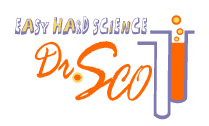Writing Science Lab Reports
Most scientists and science teachers have very specific ideas about what a lab report should contain. The problem is, they generally don’t have the time to explain this to you in anything resembling Plain English.

So, for the first time in the history of science, I’ve put together a clear, comprehensive, step-by-step, just-follow-me-and-learn guide to making a laboratory report.
Single Course Lifetime Access
Lifetime access for this course… no cost.
Prerequisite: You are ready for this course if you can write in paragraphs and use a simple calculator. You’ll need a ruler.
Description: Once you understand the lab report formula, you’ll be able to make a good looking, easy reading report from any experiment: good experiment, bad experiment, or even that messy incident in the kitchen that didn’t quite work out as planned… Oops. Perhaps some experiments belong in the back yard.
Seriously, though, I’ll show you EXACTLY how to do 23 simple steps in the correct order to make a good lab report every time, guaranteed. All this information is provided in under two hours of follow-along videos, so that you can learn all the basics quickly. Additionally, there is a really, really simple experiment that you can perform yourself to craft your own report with your own measurements and data. You’ll master report writing, and you’ll save tons of time with future reports and experiments.
The big ideas you’ll be learning:
- Writing a solid, readable lab report that tells a story
- Making a template for future lab reports to save time
- Thinking like a scientist before, during, and after the experiment
- Organizing data
- Making measurements that are scientifically precise
Videos and material included: 25 videos (2 hours total) plus 4 printable pdf worksheets.
Topics: Topics are listed in the collapsible righthand sidebar at the top of this page. The topics will be active links to the course materials immediately when you sign up using the buttons to select between Just This Course or Get All the Courses!
Suggested schedule: 2 hours to watch videos, and 1-4 hours to complete the experiment and write your report. Experiment has an overnight wait.
Age: 13+ years old.
Cost: none
Looking for More?
There are 42 Lessons in 3 Immersive Chemistry Courses
If you want to learn practical chemistry with fun experiments, check out the three-course Immersive Chemistry series.
